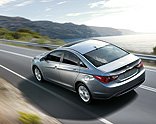 By Juan Carlos Zuleta (8/12/10)
By Juan Carlos Zuleta (8/12/10)
On March 29, 2009 I asked myself: Why Toyota (TM) and Honda (HMC) dislike lithium? My short answer to that question was: Because it was in their own interest to behave this way.
As is well known, these car makers pioneered the use of hybrid technology with nickel metal hydride batteries. Both created the conditions for a very profitable niche market, the hybrid electric vehicle market. So they had much to gain from delaying the arrival of the real electric car revolution since this would help them make more profits out of a rather obsolete but still commercially viable battery technology until the new emerging battery technology is finally introduced into the market. By doing so, they were also contributing to postponing the arrival of the sixth techno-economic paradigm with lithium as its main factor.
But this, of course, was a flawed strategy. In another blog published in April last year I argued that following a rather cautious and conservative approach to a lithium-based transition to electric propulsion in the global car industry implied their lagging behind General Motors insofar as electric automobile technology.
In a Seeking Alpha article published in July 2009, I went on to argue:
“Until now, most analysts thought that there was no real potential for use of Li-ion batteries in Hybrid Electric Vehicles (HEVs). They erroneously believed that Nickel-Metal Hydride (NiMH) batteries were the best choice for today’s HEVs, whereas Li-ion batteries were reserved for tomorrow’s Plug-in Hybrid Electric Vehicles (PHEV), Range Extended Electric Vehicles (REEVs) and Battery Electric Vehicles (BEVs).”
This argument, of course, never made sense. It rested on the unreasonable two-fold assumption that Li-ion batteries are not ready for prime-time and that plug-ins (and, for that matter, REEVs and BEVs) are a scam. For one thing, Hitachi’s notice tears apart the first half of the above contention. For another, Toyota’s latest decision to begin mass-producing PHEVs by 2012 and Nissan’s conviction that “now’s time to go electric” completely demolish the second half of it. Indeed one should not be surprised since PHEVs can be really thought of as an extension of HEVs. So if Li-ion batteries are to be used quite soon in plug-ins and both range-extended and battery EVs, then why not utilize them now for conventional hybrids as well?”
And I then concluded:
“Given both GM’s re-launch and Nissan’s renewed financial situation after having been granted a $ 1,6 billion loan to develop advanced Li-ion batteries for its new pure electric car, to retain its largest share in the automobile market of the world, Toyota will probably need to modify significantly its current conservative business strategy.”
As of now, both Toyota and Honda appear to have made some progress in this regard. Toyota has already launched its first 500 plug-in hybrid electric vehicles (PHEV) with Li-ion batteries for testing in Japan, North America and Europe and has recently announced that as part of its new partnership with Tesla it will mass-produce a new version of the all-electric RAV4 also with such advanced battery technology. Honda’s new CEO announced a few weeks ago that in the next-generation Civic Hybrid to be launched in 2011 it will use Li-ion batteries supplied by Blue Energy, a joint venture company between GS Yuasa and Honda.
The question is now whether these efforts will be enough to prevent Hyundai (HYMLF.PK) from leapfrogging them in the hybrid electric car market following its recent announcement that later this year it will launch the 2011 Sonata Hybrid, the world’s first mass-produced hybrid with a lithium-ion battery pack. And the most obvious answer at this point is: Probably not.
So this leads us to a new query: Will Toyota and Honda rethink their business strategy now so as to finally become more aggressive in terms of using Li-ion batteries in their next different car models? And my humble opinion is that chances are they will.

How do you figure hybrid platforms are highly profitable? Last I checked, it took forever to break even on the dev costs and even so, they were held up as halo effect vehicles rather than anything even remotely like a profit center.
The hybrid platform has been part of a long-term strategy. I agree there was (and probably stil is) some kind of halo effect around it to make everybody believe that Toyota and Honda were/are really involved in the preservation of the planet and hold/held the world´s best automobile technology. But nobody produces two million cars in about a decade not to make a profit. My humble guess is that beginning 2005-2006 started to make profits with hybrids after investing lots of money in development costs. Up to then, no one believed there was a threat to this technology. That changed after January 2007 when GM announced it would launch by 2010 the world´s first plug-in hybrid electric vehicle. Both Toyota and Honda dismissed the Li-ion battery technology back then on unplausible arguments. At last, they had no choice but to embrace the new technology. Now if you are talking this year, I agree they are probably no longer making profits out of hybrids but this is because both NiMH batteries and hybrid motors are becoming more and more expensive due to problems of resource availability, following China´s restrictions on rare earths.